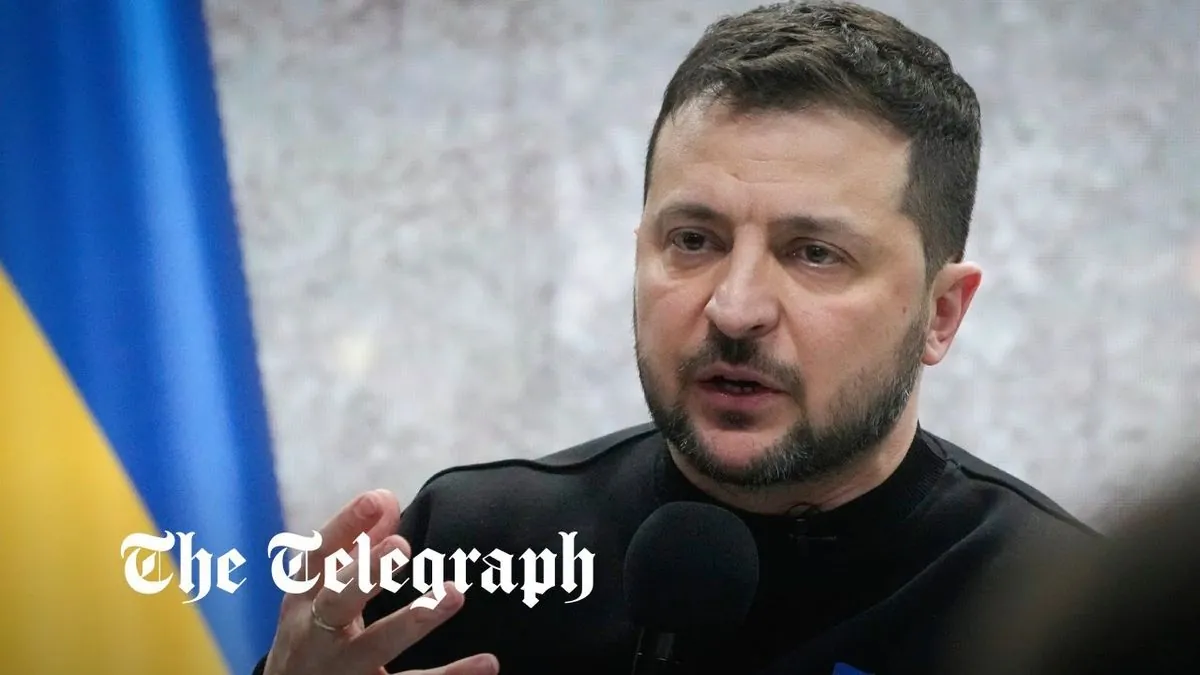Volodymyr Zelensky, Ukraine's President, has revealed plans for a strategy aimed at concluding the ongoing conflict with Russia. This announcement comes amidst recent developments in the war, including a Ukrainian incursion into Russian territory and continued battles in eastern Ukraine.
On August 27, 2024, Zelensky stated that the recent operation in Russia's Kursk region, which began on August 6, is part of a broader plan to end the war. The Ukrainian military has reportedly captured nearly 600 Russian soldiers and gained control of approximately 500 square miles of territory in Kursk Oblast, including the town of Sudzha.
Oleksandr Syrsky, Ukraine's commander-in-chief, reported the capture of 100 settlements during this operation. However, he noted that the situation remains challenging, with Russia deploying over 30,000 troops to the area and engaging in about 50 daily clashes with Ukrainian forces.
The most intense fighting continues in eastern Ukraine, particularly around the city of Pokrovsk, a crucial logistical hub in the Donetsk Oblast. The Ukrainian military is striving to stabilize the situation in this area as Russia advances in its efforts to control the entire Donbas region.
Zelensky plans to present his strategy for ending the war to US leaders, including President Joe Biden, Vice President Kamala Harris, and former President Donald Trump, in the fall of 2024. While details of the plan remain undisclosed, Zelensky emphasized that its main objective is to compel Russia to end the war and achieve justice for Ukraine.
"The main point ... is forcing Russia to end the war. We really want justice for Ukraine. And if this plan is accepted — and second, if it is executed — we believe that the main goal will be reached."
Meanwhile, Ukraine continues to face Russian attacks. On August 27, a wave of drone and missile strikes resulted in seven fatalities and 47 injuries, including three children. Zelensky confirmed that Ukraine had utilized recently acquired F-16 fighter jets to intercept some of the Russian missiles, marking a significant development in Ukraine's air defense capabilities.
The conflict has also raised concerns about nuclear safety. Rafael Grossi, Director General of the International Atomic Energy Agency, inspected the Kursk nuclear power plant, located near the front line. While he stated that the plant is operating under near-normal conditions, he acknowledged the potential risks posed by nearby military activities.
In response to these developments, Russian Foreign Minister Sergei Lavrov dismissed Ukraine's negotiation attempts, insisting on direct talks without preconditions.
As the conflict continues, Russia has opened criminal cases against several foreign journalists for allegedly entering Russian territory illegally to report from Kursk. This move has affected reporters from various international media outlets, including Deutsche Welle, CNN, and RAI.
The ongoing war, which has now lasted for over two and a half years, continues to shape the geopolitical landscape of Eastern Europe and beyond. As Ukraine pursues its strategy to end the conflict, the international community watches closely for potential breakthroughs in the peace process.
